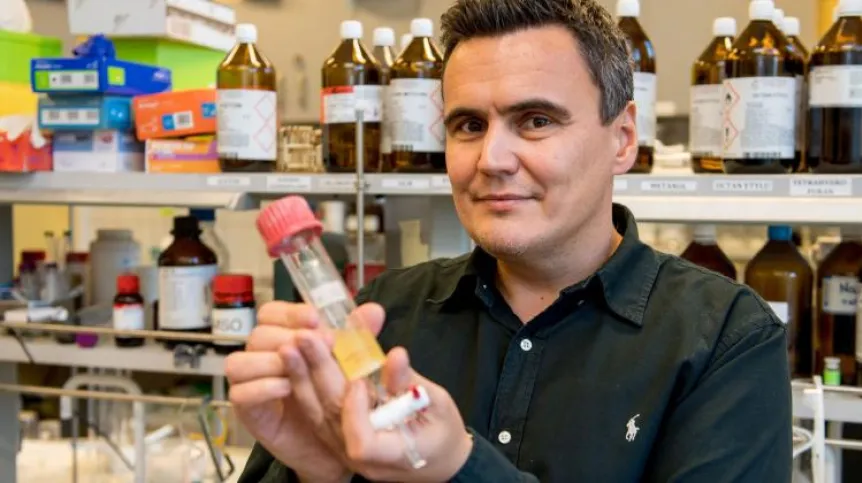
A Polish scientist could be on the verge of a major breakthrough in the fight against coronavirus.
Professor Marcin Drąg from the Wrocław University of Science and Technology and his team have cracked an enzyme which they say may be key to finding a cure.
"This is the most important protein - among the many identified - that the companies looking for a super-fast diagnostic test are talking about", says Professor Marcin Drąg from the Wrocław University of Science and Technology, winner of the 2019 FNP Prize in the field of chemical and materials sciences.
Professor Drąg told PAP: “If you compare the enzyme to a lock, we've got the key that opens it.”
The enzyme that the team studied, SARS-CoV-2 protease, cuts the proteins present in this virus.
According to Drąg: “This allows it to survive. Inhibiting the action of this enzyme immediately causes this virus to die.”
He added: “If we developed a drug that would inhibit the activity of this enzyme, we would practically kill the coronavirus. This is known from the previous epidemic of coronavirus – SARS.”
The enzyme was known about previously, but there were millions of possible combinations of 'keys' to it. The team from Wrocław say they have now “found the one key that matches this enzyme.”
The breakthrough came after scientists at Lübeck University in Germany sent the enzyme to the Wrocław team in February.
They found that there are virtually no such enzymes in humans, meaning that if drugs that target the enzyme are developed, they will harm the virus, but not the human.
The publication with Professor Marcin Drąg's team's research results is still under review, but the researchers have already made their results available to scientists around the world for free. 'We have not patented this. The publication preprint is available online. This is a gift from my laboratory to anyone interested', the scientist notes. He adds that a few days after publication there is no shortage of interested parties. Teams from various parts of the world come forward with questions and cooperation proposals.
Professor Drąb said: “What we have now published is some of the most important information you can have about this enzyme. It is its full substrate preference.”
He added that the research shows which amino acids the enzyme can bind to in key positions. 'We can say whether they are large, small, hydrophobic or basic amino acids. We can also create a map of the most important place of this enzyme and even match to drugs that are already on the market,” he said.
Chemists and companies can now use the results to create new bioactive compounds for the SARS-CoV2 virus, and develop diagnostic tests that would allow to determine whether someone has coronavirus faster.
'We are currently targeting other proteins from this virus, not just proteases. The pace of work is amazing', says Professor Marcin Drąg.
Part of the success behind the quick research results was a new technology platform developed by Professor Drąg enabling the production of biologically active compounds, in particular inhibitors of proteolytic enzymes.
His Hybrid Combinatorial Substrate Library (HyCoSuL) which enables scientists to design and obtain highly active and selective chemical tools, uses a wide range of amino acids (which are not found in nature) to monitor the activity of proteolytic enzymes.
It can be used to develop new therapies, medicines and diagnostic methods.
PAP - Science in Poland, Ludwika Tomala
lt/ zan/ kap/
tr. RL













